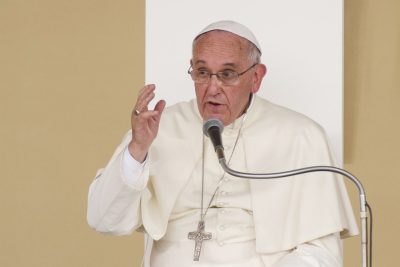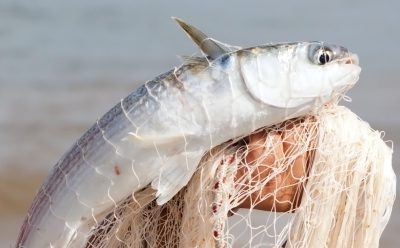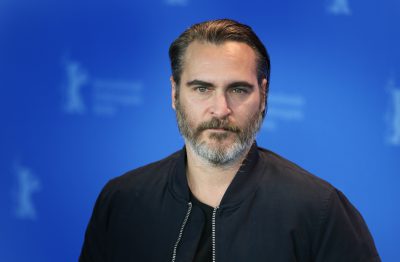In 2015, Pope Francis wrote an encyclical letter in which he spoke at length and with passion about the need to protect our world and reject the irresponsible and tyrannical domination of humans over other creatures. This week, in his Lenten message, he reiterated that compassion, condemning our destructive treatment of our neighbors and other creatures. He wrote:
“Sin leads man to consider himself the god of creation, to see himself as its absolute master and to use it, not for the purpose willed by the Creator but for his own interests, to the detriment of other creatures.” – Pope Francis
“Do not miss this opportunity”
And he urged us to not miss the opportunity of Lent to reflect on our lives and our actions, and to make changes for the good of all.
Since Pope Francis was elected, his message has remained consistent, and it seems it is being heard. This week, the French newspaper La Croix wrote that in the past three years, initiatives to link Lent with safeguarding the environment are increasing in dioceses within France.
And in October, the Synod of Bishops for the Amazon region will meet at the Vatican to discuss “New paths for the Church and for an integrated ecology”. Protecting the Amazon has become a priority for the Church, but will they discuss its decimation that is being driven by animal agriculture? Time will tell.
It is heartening, however, to see the Catholic Church discussing these important issues and for Pope Francis to continue to raise them. His message is repeated that man is not at the centre of this world, that humans are not in the place of God, and that our duty is one of care, not of domination, abuse and exploitation.
“Everything is connected, humans are not the self-referential centre of Creation,” said Cardinal Peter Turkson, President of the Pontifical Council for Justice and Peace in Vatican City.
Aligning Ethics and Actions
And it is. Our daily actions can have a profound effect on the world around us. If we choose to eat animal products, we should know that we are causing suffering to farmed animals and driving wild species to extinction. We should know that our purchases are increasing the likelihood of pollution and deforestation, and that meat is not sustainable. It cannot feed a growing world population. That is why we are calling on Catholics to reflect upon these issues during Lent and to make changes in their own lives.
Pope Francis is saying all the right things but, like many of us, his principles are not yet fully aligned with his actions. He does not want animals to suffer and yet they are slaughtered for his consumption. He desperately wants to preserve and care for the environment and yet his eating habits are driving deforestation, species loss and climate change.
We are not singling out Pope Francis for criticism, quite the opposite. We know he cares deeply, and we know he speaks up and encourages transformative behaviour.
Now, we are asking him to lead the world, and to show how easy and beautiful it is to align principles with actions.
In his own words. “Let us not allow this season of grace to pass in vain!”



